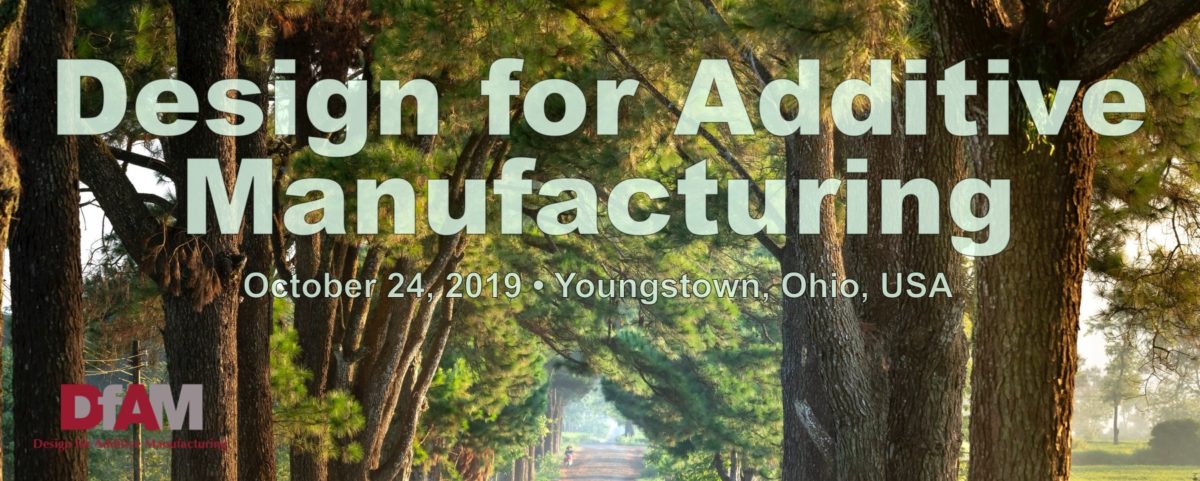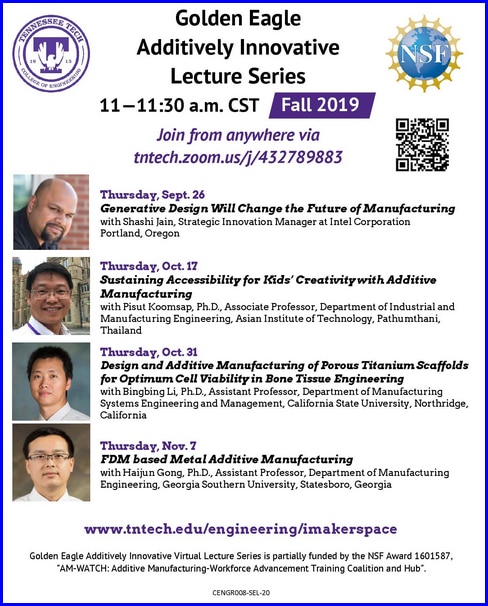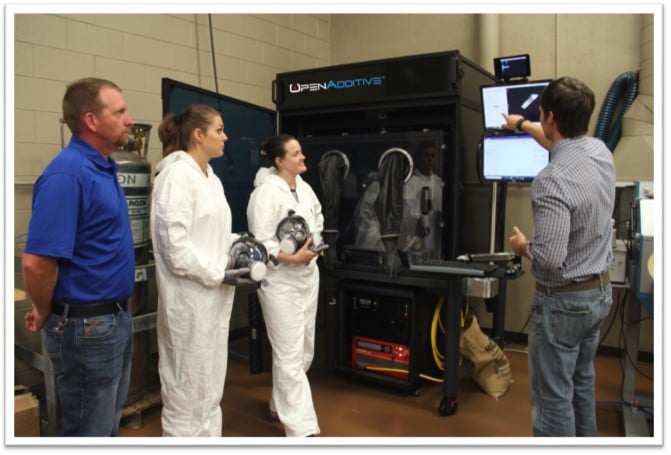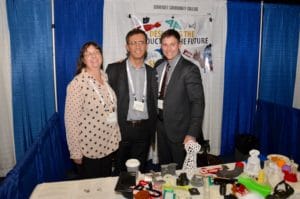Collaboration is a terrific way to learn and during the 2018 Fall semester, five students from two community colleges and one university worked together to share their design and additive manufacturing (AM) facilities and capabilities. Three students were from Tennessee Tech University, one from Sinclair Community College, and one from Somerset Community College.
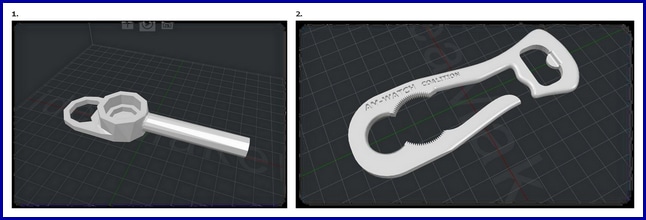
The goal was to join forces to allow teams to leverage skills gained in different courses, improve design competencies, and have an opportunity to apply them in the lab. Before that, however, design files were evaluated and modifications suggested, when appropriate. One of the student teams studied technical drafting in one community college’s design course, while the other two institutions opened the doors of their AM labs so that students can take that design knowledge straight to a 3D printer.
Project Evaluation: Students’ Perspectives
When asked about the part of the project that they enjoyed the most, the students stated the following:
-
-
- 3D printing in different machines and materials
- I helped and recommended design changes to optimize the part, especially the bottle opener side. I recommended to reinforce the area with more stress concentration
- The redevelopment of the opener was a great aspect because it showed me how a real product would work through the design process and how to change and fix problems
- Testing to see what worked best
- The design phase
-
The students indicated having learned invaluable lessons from the bottle cap opener project, to include the following:
-
-
- Design is not about looks;
- It is about functionality;
- How to efficiently optimize the part with the help of CAD software;
- The redevelopment stage of designing and how the first design will always change;
- Iterative designs are great for improvement of the end product, and;
- Ergonomic design techniques.
-
Using a simple bottle cap opener, students sought to see if they could improve it with design and 3D printing skills (image above of the before and after designs). In addition to the design and printing revisions that helped students achieve a functional finished product, students improved design skills, plus they gained other unique soft skills that will help them as they graduate and head into the workforce or further studies. According to the four professors involved (see list below), from an evaluative standpoint, overall, the project was a success. Both the faculty and students were satisfied with the process and product.
Using this innovative bottle cap opener (image above of the before and after designs), design and 3D printing skills were increased for students and faculty members in this practice. In addition to the design and printing revisions that helped students achieve a functional finished product, students gained other unique soft skills that will help them as they graduate and head into the workforce or further studies. According to the four professors involved (see list below), from an evaluative standpoint, overall, the project was a success. Both the faculty and students were satisfied with the process and product.
-
-
- Dr. Ismail Fidan, Tennessee Tech University
- Dr. George Chitiyo, Tennessee Tech University
- Mr. Eric Newland Wooldridge, Somerset Community College
- Mr. Thomas Singer, Sinclair Community College
-
The project team also filed a provisional patent application on the Universal Bottle Opener created and designed as part of this collaboration (which we highlighted here on AM News). In addition, the paper provides a terrific case study on the design progression and step by step iterations of the bottle opener. You can download the full ASEE paper for this multi-institution project, including student feedback and learning outcomes.
This project has been funded by NSF Award Number 1601587 entitled AM-WATCH: Additive Manufacturing Workforce Advancement Training Coalition and Hub.
